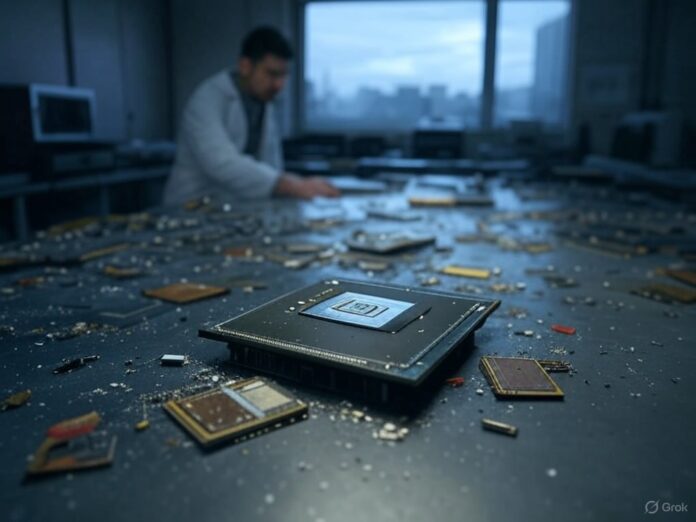The U.S. restrictions on the export of H20 chips are having a significant impact on China's artificial intelligence sector. DeepSeek, a startup notable for its advances in AI, has encountered significant obstacles in the development of its new R2 model due to the shortage of these processors, according to The Information. The DeepSeek R1 model, which had been trained with an enormous cluster of 50,000 NVIDIA GPUs, including 30,000 H20 units, had quickly gained popularity in various Chinese industries.
The blockade imposed by the United States since April 2025 has begun to affect not only the continued use of the R1, but also the preparation for the launch of the R2. This promising model does not yet have a confirmed release date due to current limitations, although the DeepSeek team continues to optimize it internally.
The dependence on American hardware, such as NVIDIA GPUs, remains a weak point for AI in China. The H20, a limited version of the H100 chip, was the preferred option due to its compatibility with NVIDIA's CUDA ecosystem. Although the country has tried to create an independent hardware industry, this situation highlights the structural vulnerability to external political and commercial decisions.
Moreover, tensions with Western companies have intensified. OpenAI has accused DeepSeek of using proprietary models during the development of the R1, a claim that the Chinese company has not publicly addressed. Although DeepSeek had achieved significant advances with fewer resources than competitors such as OpenAI, these challenges highlight the delicate balance in which AI companies operate in China.
This export ban not only slows the progress of DeepSeek, but also underscores the global dependence on American hardware in the technology sector, even among the leaders in artificial intelligence.
More information and references in Cloud News.



